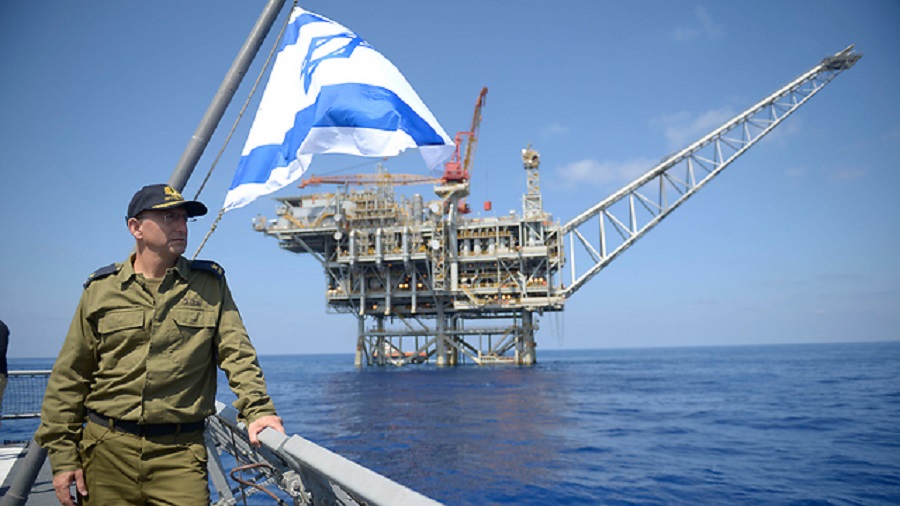It has been over a week now since the Middle East has continued to brew with what appears to be the fiercest conflict between Israel and Palestine in years. One report notes that the current conflict which seems to have come to a ceasefire after various interventions, is the most severe since the 2014 conflict that resulted in the invasion of Gaza; and is the fourth of its kind since 2008 between the two sides.
In the last nine days since the first rockets were fired and the clashes between the two entities came to a head, both sides have witnessed casualties and loss of property. Beyond this, however, there are concerns about the impact on energy security within Israel and Gaza. According to news reports, Hamas, the Palestinian militant group that rules Gaza, fired a missile that hit the Trans-Israeli oil pipeline between Eliat and Ashkelon, which extends from the Gulf of Aqaba to the Mediterranean, thereby damaging the pipeline and setting a large oil tank on fire.
READ: Nigeria’s revenue crisis may further worsen as India cuts oil imports by $39.5 billion
The missile attack on the oil pipeline also led to Chevron shutting down the Tamar gas platform off the Israeli shore – this definitely means no production until the coast is clear.
In late Q4 2020, with improving relations between Israel and its neighboring Arab States, a consortium of oil companies in the United Arab Emirates (UAE) held talks about utilizing the Trans-Israeli pipeline to transport oil products from the Persian Gulf to the Western markets. In a follow-up to that, only last month, Mubadala Petroleum, Abu Dhabi’s government-owned energy investment subsidiary signed a memorandum of understanding to buy 22% of the Tamar gas field for $1.1billion.
READ: Nigeria’s Untapped LPG Market: Where Policy and Investment Meet
The fact that the buyer of such significant interest in Tamar was Arab was a good incentive for other international players considering investing in Israel, as it evinced a level of geopolitical stability and the prevalence of business and commercial interests over political or ethnic interests.
Yet with the current escalated conflicts in the region and the palpable fear that even with the ceasefire, reprisals may be brewing on either side, investors may adopt a wait-and-see approach before proceeding with investments in Israel, especially for large investments such as these. There is also the concern that the conflict may reignite tensions amongst Israel and its other Arab neighbors, some of whom it had achieved peaceful coexistence with, in recent months, particularly countries like the UAE and Bahrain.
READ: Buhari flags off $2.8 billion gas pipeline project, biggest in Nigeria’s history
While some pundits insist that this UAE gas field acquisition will still go forward due to economic interests on the Israeli and UAE side, the political risks to the project have now significantly increased and may affect pricing in order to compensate for the risk profile.
Further, in late February this year, Qatar pledges $60 million to build a gas pipeline from Israel to the Gaza Strip in order to end the energy crisis that has crippled the Gaza economy. The project would transition the Strip from the expensive and polluting diesel it uses to produce electricity to low carbon natural gas. The plan is to pipe gas from the deepwater Leviathan field through Israel and into Gaza. With the fighting in the region, the situation of those in the Gaza Strip has not only worsened, but it would also inevitably result in a delay in this project, as one of the key motivations for the project was the fact that there had been no Israeli-Palestinian tensions in seven years, and that Israeli, Palestine, Qatari and European interests had converged to deliver on the project.
READ: NNPC records 77% rise in pipeline vandalism across the country
Israel has a lot to lose in the recurrent geopolitical crises, particularly with respect to energy security. From joining the Eastern Mediterranean Gas Forum (EMGF) alongside, Egypt, Greece, Cyprus, Jordan, and the Palestinian Authority in order to create a regional gas market, to its ambition to become a regional gas leader and exporter of LNG, Israel’s current conflict mode sours the relations it has built within the EGMF and gives its political foes in Ankara cards to play as they move towards ensuring Israel’s gas ambition does not succeed. On the other hand, as it is reported that Qatar bankrolls Hamas in Gaza, whether this would influence talks around Qatar’s gas pipeline funding pledge or not remains to be seen.
Admittedly, while most Arab States have severely criticized the Israeli policies on Palestine during this period, with little action to back up this condemnation, one cannot tell how much economic interests will prevail to determine their continued relations, particularly with respect to Israeli gas. One thing is certain, however, continued conflicts in Israel, the West Bank, East Jerusalem, and the Gaza Strip will negatively affect Israel’s internal energy security as well as its ambition to be a regional gas exporter to Europe. The conflict will also significantly affect Gaza and worsen the quality of life of its inhabitants.












